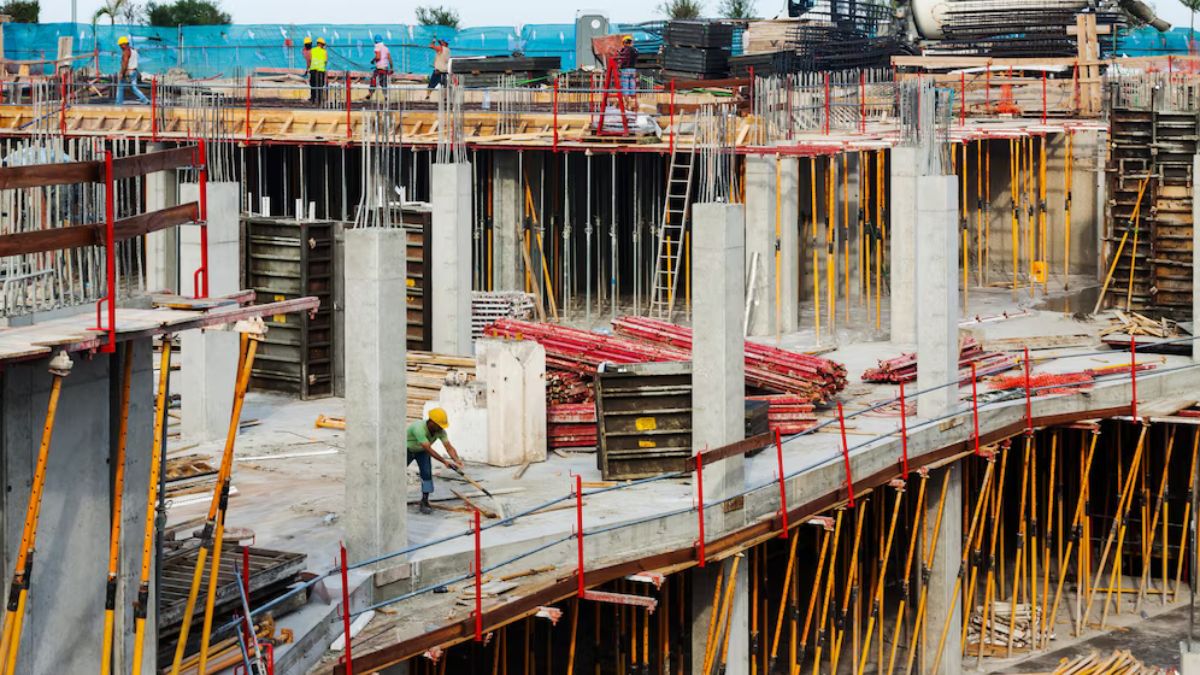Welcome to the dynamic world of construction project management, where every blueprint holds the promise of creating something extraordinary. In this fast-paced industry, project managers are the orchestrators of innovation and progress, turning visions into tangible reality. Join us on a deep dive into the critical role project management plays in shaping the skylines and infrastructure that define our modern landscape. Let’s explore how effective project management practices drive success amidst the challenges unique to construction projects.
The Role of Project Management in the Construction Industry
The role of project management in the construction industry is indispensable. Project managers are like conductors orchestrating a complex symphony of tasks, timelines, and resources to ensure successful project completion. They are pivotal in bridging the gap between stakeholders, contractors, and suppliers.
In construction projects, project managers oversee everything from scheduling and budgeting to quality control and risk management. Their ability to multitask, problem-solve on the fly, and communicate effectively is crucial for keeping projects on track.
Effective project management in construction requires a keen eye for detail, exceptional organizational skills, and the capacity to adapt swiftly to unexpected challenges that may arise during a build. From coordinating manpower on-site to liaising with architects off-site, project managers wear many hats throughout the lifecycle of a project.
Their expertise ensures that construction projects are delivered on time, within budget constraints while meeting quality standards set by clients.
Key Responsibilities of a Project Manager in Construction
Project managers in the construction industry play a crucial role in overseeing projects from start to finish. Their key responsibilities include creating project plans, setting timelines, and managing budgets effectively. They are tasked with coordinating with various stakeholders such as architects, engineers, contractors, and suppliers to ensure smooth project execution.
A significant aspect of their role is risk management – identifying potential risks and developing strategies to mitigate them before they impact the project. Project managers also need strong communication skills to keep all team members informed and aligned throughout the project lifecycle.
They must have a keen eye for detail to monitor progress accurately and address any issues promptly. Additionally, ensuring compliance with safety regulations and quality standards is paramount in construction project management. Adaptability and problem-solving skills are essential for handling unforeseen challenges that may arise during the course of a project.
Common Challenges Faced by Project Managers in Construction
Managing a construction project comes with its share of challenges that project managers often face. One common issue is dealing with unexpected delays due to weather conditions, material shortages, or regulatory issues. These delays can disrupt the project timeline and increase costs.
Communication breakdowns among team members and stakeholders can also pose a challenge in construction project management. Ensuring clear and effective communication is crucial to keeping everyone on the same page and avoiding misunderstandings.
Another common hurdle is managing changes in the scope of work. As client requirements evolve or unforeseen obstacles arise, project managers must adapt quickly while balancing budget constraints and timelines.
Health and safety regulations are paramount in the construction industry, adding another layer of complexity for project managers to navigate. Ensuring compliance with these regulations while maintaining productivity can be demanding but essential for successful project completion.
Strategies for Successful Project Management in Construction
When it comes to successful project management in the construction industry, having a well-defined plan is crucial. This includes setting clear goals, timelines, and milestones to keep the project on track.
Communication plays a vital role in ensuring all team members are aligned with the project objectives. Regular meetings and updates help foster collaboration and problem-solving among stakeholders.
Risk management is another key strategy for success in construction project management. Identifying potential risks early on allows for proactive mitigation strategies to be put in place.
Utilizing technology can streamline processes and improve efficiency on construction projects. Project management software, BIM technologies, and drones are just some examples of how innovation can enhance project outcomes.
Continuous monitoring and evaluation of progress against set metrics enable adjustments to be made swiftly if deviations occur. Flexibility is key when unforeseen challenges arise during the course of a construction project.
Technology and Innovation in Construction Project Management
The construction industry is no stranger to the rapid advancements in technology and innovation that have transformed project management practices. With the integration of digital tools and software, project managers can streamline communication, track progress in real-time, and optimize resource allocation efficiently.
One of the key innovations revolutionizing construction project management is Building Information Modeling (BIM). This technology allows for the creation of detailed 3D models that enhance collaboration among stakeholders, improve decision-making processes, and minimize errors during construction.
Mobile applications have also become indispensable tools for on-site project management. From tracking daily reports to monitoring safety compliance, these apps empower project managers to stay organized and informed while overseeing complex construction projects.
Furthermore, drones are increasingly being used to conduct aerial surveys, monitor progress from above, and ensure adherence to design specifications. By leveraging drone technology, project managers can enhance site visibility and efficiency while reducing costs associated with traditional surveying methods.
Conclusion
In the fast-paced and dynamic world of the construction industry, effective project management is essential for successful outcomes. Project managers play a crucial role in overseeing complex projects from initiation to completion, ensuring that timelines are met, budgets are adhered to, and quality standards are maintained.
With a deep understanding of project management principles and strategies tailored to the unique challenges of the construction sector, professionals can navigate through obstacles and deliver exceptional results. By embracing technology and innovation, project managers can streamline processes, enhance communication among stakeholders, and improve overall efficiency.
As the construction industry continues to evolve with advancements in technology and changes in market demands, skilled project managers will be indispensable assets for driving progress and managing complexities effectively. By honing their skills, staying adaptable to change, and leveraging cutting-edge tools at their disposal, project managers can lead their teams towards success amidst challenges.
By prioritizing collaboration, communication,
and strategic planning while remaining agile in response
to unforeseen circumstances,
project managers in the construction industry can pave
the way for sustainable growth
and excellence in every endeavor they undertake.










